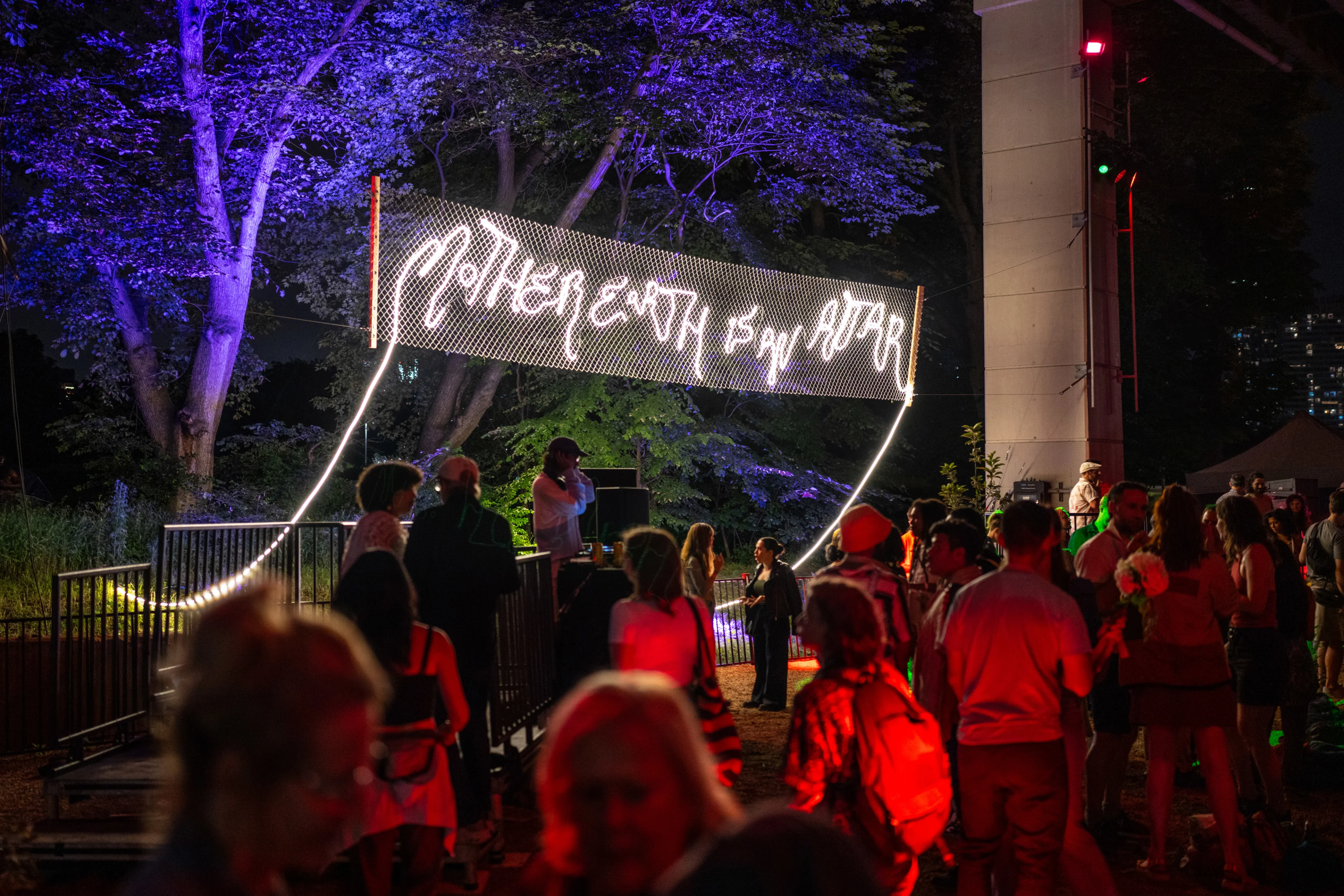
This 'climate rave' aims to help people grapple with eco grief and anxiety
Earth Dreams is an urban gathering meant to confront climate change and celebrate possibilities for Earth’s future. The Weather Network met with organizers and attendees at the event in Toronto to hear their thoughts on dealing with the climate crisis.
With simultaneous headlines of wildfires, flooding, and record-breaking temperatures, the scale of climate change has sometimes been described as overwhelming or even “debilitating.”
Climate anxiety, or eco-anxiety, has been used to define the distress stemming from the worries about the effects of climate change.
A study in The Journal of Climate Change and Health found that 78 per cent of respondents reported that climate change impacted their overall mental health, and 37 per cent reported their feelings about climate change negatively impact daily functioning.
To combat this, hundreds gathered in Toronto over the weekend to take part in a sensory experience led by designer duo Nocturnal Medicine called Earth Dreams, an urban gathering meant to confront climate change and celebrate possibilities for Earth’s future. Described as a party with a meditative journey, the night encompassed collective solidarity, dancing, and moments of contemplation while drawing from the histories and futures of The Bentway under the Gardiner Expressway.
With concurrent environmental crises evoking powerlessness and disconnection in so many, the people gathered to collectively grieve and experience joy as a way towards connection to our environment and one another — and towards action.
Photo and videojournalist Katherine Cheng went to Earth Dreams for The Weather Network to hear from the organizers and attendees about their feelings around the climate crisis and the event itself.

Larissa Belcic, left, and Michelle Shofet, right, of Nocturnal Medicine. (Katherine Cheng/The Weather Network)
Larissa Belcic, Nocturnal Medicine: We are artists and designers, and we together have a nonprofit design studio called Nocturnal Medicine.
Michelle Shofet, Nocturnal Medicine: We're based in New York, and essentially we create events, experiences, and media that are designed to help people process and move through climate change, ecological degradation, and the kind of larger than life environmental issues that we're facing today.
“This is what the city could look like and this is how we could be coming together if we were actively recognizing our environmental reality together, on a regular basis.” - Larissa Belcic
LB: I don't think there was one moment that brought us to this work, but maybe more of a long evolution. Our origins as collaborators goes back to when we were studying landscape architecture and we both were doing this work kind of looking at landscapes that were degraded in some way — whether we were working with designing for the oil fields or an electrical infrastructure or brownfields — just places that kind of receive the worst of the way that we interact with our environment. And really [we were] interested in the cultural relationships that we have with these places where you see a lot of kind of turning away, a lot of shame.
MS: A lot of our work, I would say, is about helping people move past guilt, past shame and into a place where they can actually feel their feelings. A lot of the feelings that you come up against when you pass guilt and shame are things like sadness and grief. And those can be very mobilizing emotions. Those emotions can help. You want to make change, take accountability, take responsibility, move forward. So a lot of our work is about shaking people out of this place of doom and grief where they are stuck and helping them move to a different place where they can be more alive, be more responsive, be more active.
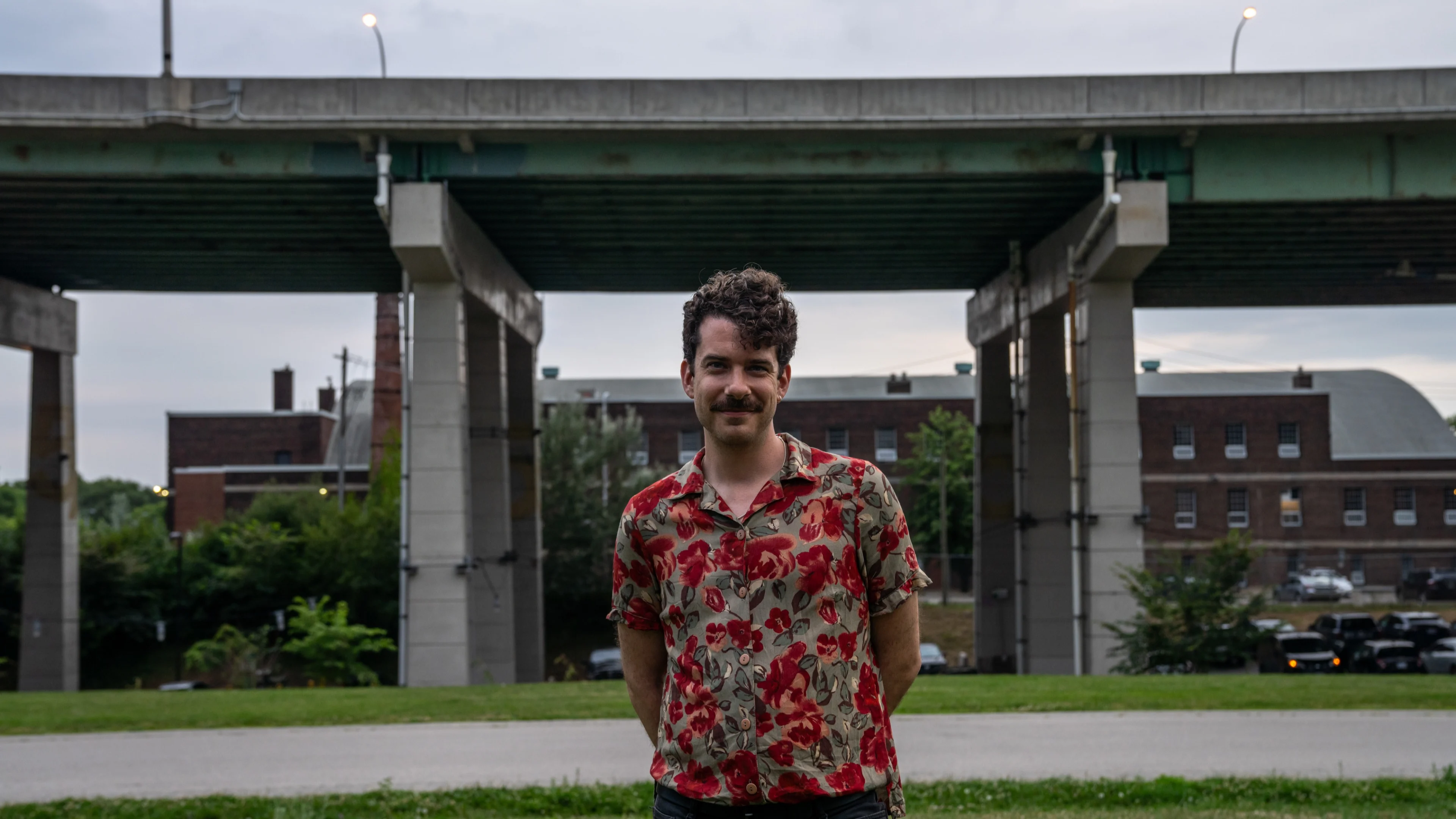
Alex Rand is the programming manager and curator at The Bentway. (Katherine Cheng/The Weather Network)
Alex Rand, programming manager/curator: Climate grief is one of those things that, for me, I don't know if I necessarily felt I had a name for it until I started learning about [Nocturnal Medicine’s] work. And I think that when I hear about the future of the climate crisis and I think about the state of the world, whether that's now or in 10 years or in 20 years, there's this sort of overwhelming anxiety that I can’t kind of put words to.
I love this planet. I look around and I think, 'Oh, that could never happen here.' And at the same time, we just saw smoke filling our skies twice this past month. And there's this sort of frustration that I have or this unravelling of what I think the future will look like based off of this idea I had as a kid.
I'm hoping that this is a space for people to come together as a community and to realize that the anxiety that they feel is shared amongst other people and that, you know, we're not trying to solve the climate crisis, but we are trying to create a space in which those anxieties can be released and shared and imagine a future possibility.
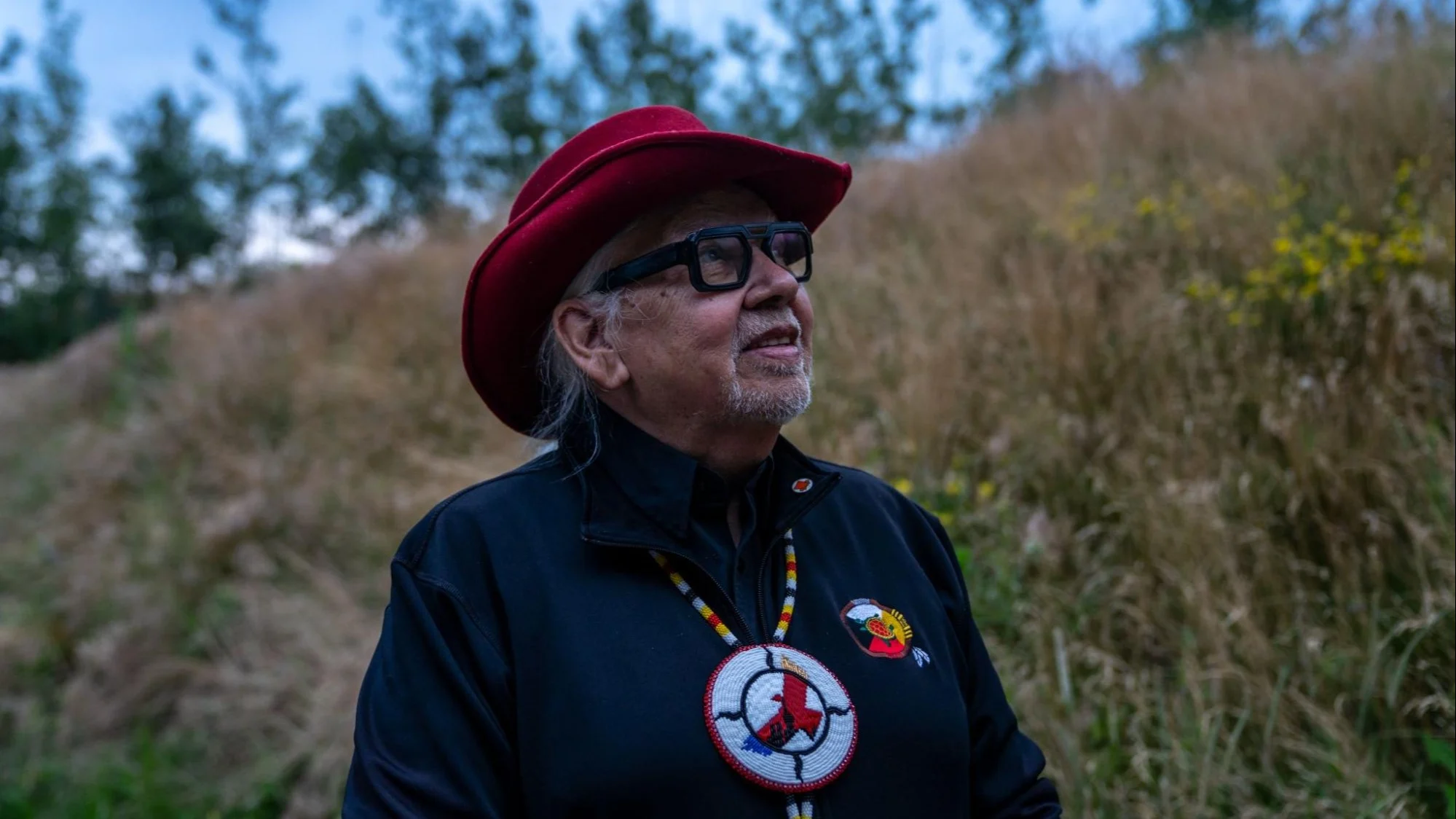
Dr. Duke Redbird is an Elder of the Saugeen Ojibway Nation. (Katherine Cheng/The Weather Network)
Dr. Duke Redbird: I'm really happy to be able to come here in this beautiful setting and participate in an event called Earth Dreams. I have written some poetry, so I'm going to recite it tonight and will help to guide the performances through a nocturnal dream and vision.
The first poem that I'm going to perform is a meditation poem called “Our Mother Earth is an Altar,” and it's a poem about the idea that all life comes from the earth. And so it's an appropriate place to give our attention to, and especially in this era of climate change and all the other things that are affecting our mother, the Earth. It's the idea that let's refresh our memory and relationship with the mother who gave us birth.
“If we take care of the earth, she will take care of us,” - Dr. Duke Redbird.
People often ask me how to have that symbiotic relationship with Mother Earth, and I always say the first thing to do is to go into nature, take off your shoes and socks, and just walk with your bare feet on the ground and she will tell you what you have to do not only to heal the earth, but to heal yourself too.
Since human beings have moved on Mother Earth, there's always been a symbiotic relationship with the life of the earth and the life of human beings. And my message to everybody is, if we take care of the earth, she will take care of us.
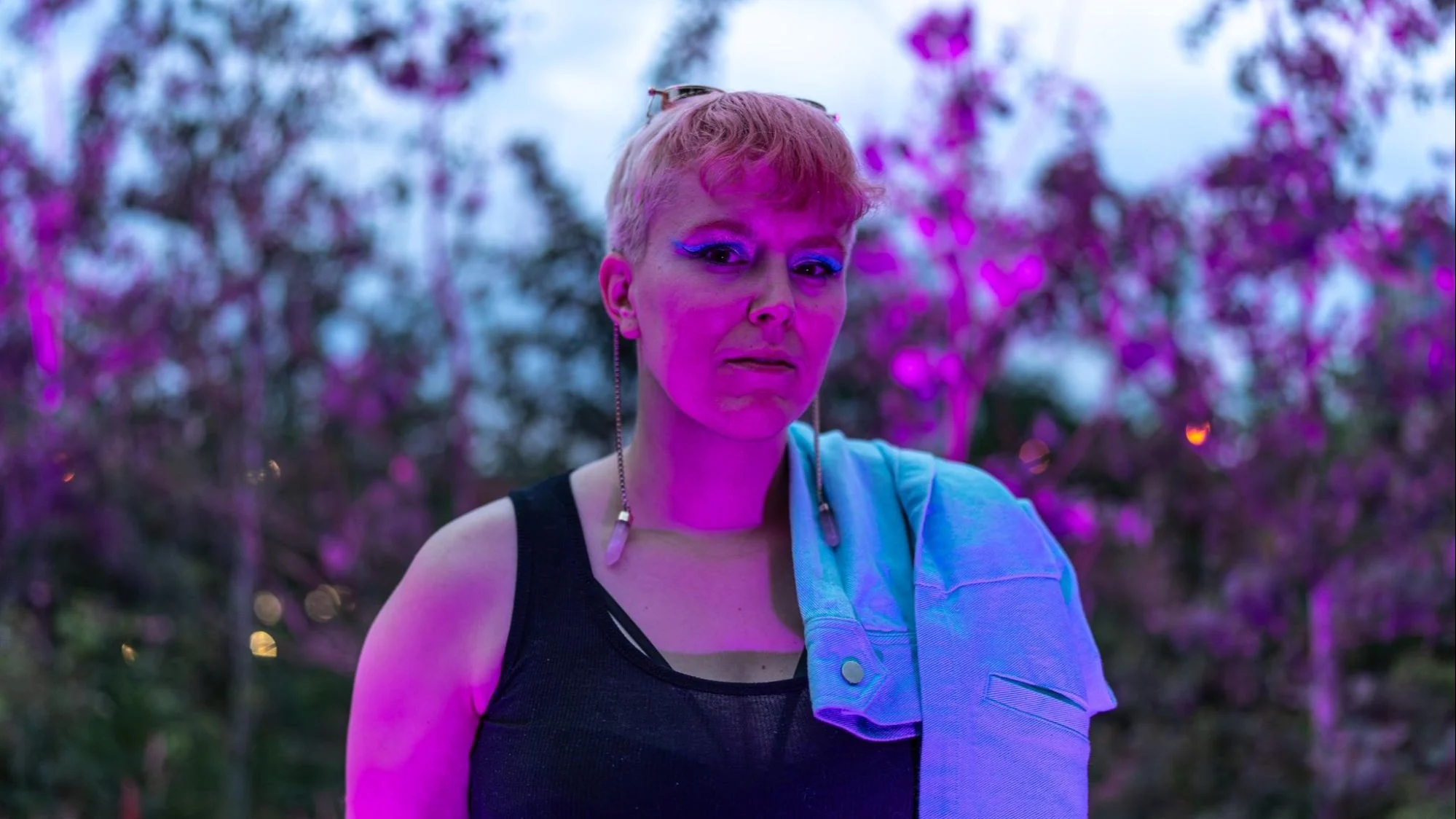
Karlie Chalmers (they/them), 31, is a psychotherapist/occupational therapist. (Katherine Cheng/The Weather Network)
Karlie Chalmers: I think it's having a shared space to acknowledge grief. I think when we disenfranchise or try to ignore and push down grief, such a complex emotion, that's really many emotions at once, right? So I think it's hard to get in touch with. It's kind of amorphous, it changes over time. And to have a space to be with people who feel the same, to get in touch with that and have other people to bounce those ideas off of.
I think it moves us from a place of anger and sadness and regret to a place of maybe action. Because once you're able to process some of those feelings, you kind of remove that reflexive impotence of like, 'Oh, I can't do anything about it. I'm helpless.' And you start to feel like, 'Oh, there's more people here. Maybe we can do something together, right?'
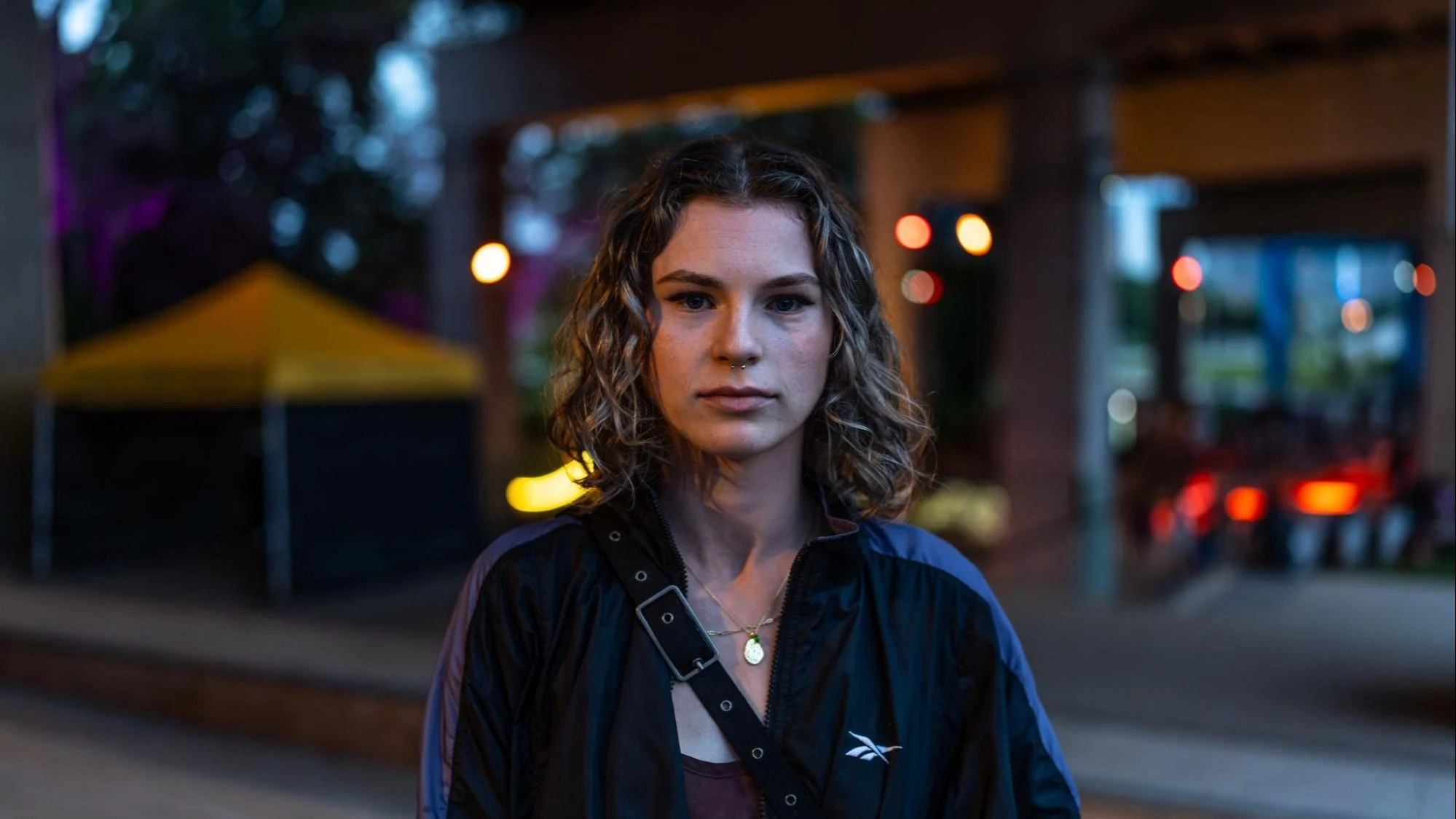
Olivia Harsell, 21, is a recreation therapist. (Katherine Cheng/The Weather Network)
Olivia Harsell: I think I've experienced climate grief, actually a couple of times. I think that it's a topic of conversation that keeps coming up. And every single time, every couple of seasons, especially every summer when we're experiencing all of these environmental changes, such as the wildfires and everything, it really brings into perspective how serious our climate is right now and how endangered it is and how much we actually need to change to do things better.
However, during those periods, I think it's always a recognition of a little bit of anger and sadness and maybe almost a point of empowerment at some point. I find that a lot of people are being really creative right now with trying to do things a lot different than we have been.
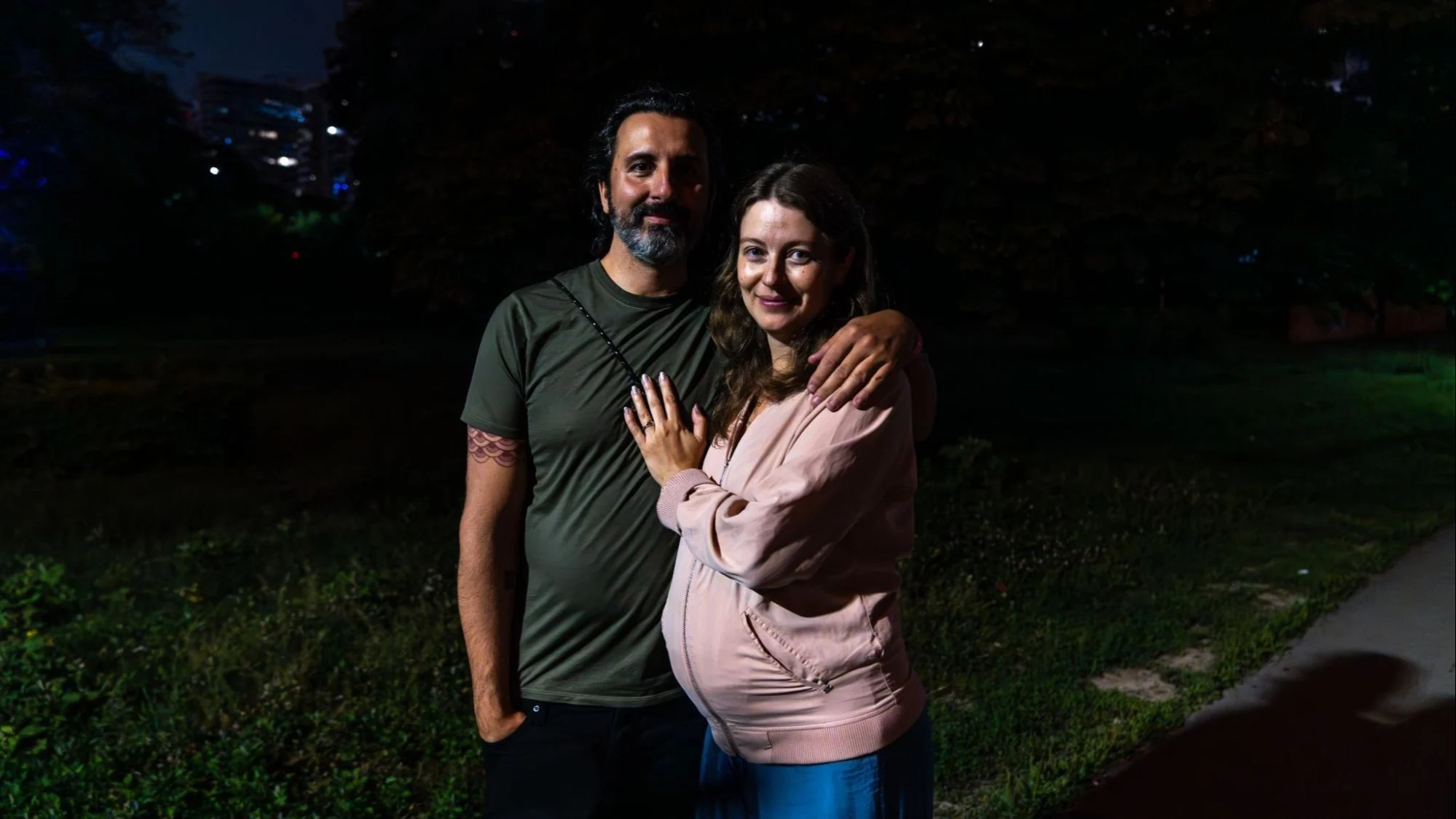
Oliver, left, and Tatiana Dudin, right, are expecting a baby in September. (Katherine Cheng/The Weather Network)
Tatiana Dudin: It's a good event in the sense that it wasn't too depressing. A lot of the time, climate grief and climate anxiety can be very debilitating. So to plan an outdoor social event around it that still connects people but makes them think about what's happening in the world, I think that's a great idea.
“I really wanted this baby. But I do think about what kind of world am I bringing her into?” - Tatiana Dudin
Oliver Dudin: I really think it's contributed to awareness, which is the first step in making real change and also community-building, and a sense that people aren't alone in their grief and in their support for finding some kind of relief from that group. So I think it's genuinely helpful any time people can get together and discuss things like grief and anxiety and work on ways of helping and relieving those things.
TD: [On her baby due in September] I really wanted this baby. But I do think about what kind of world am I bringing her into? I hope she gets to experience some of the beautiful, natural things that I got to experience in my life as well. And, yeah, I'm hoping for the best for her and the world.
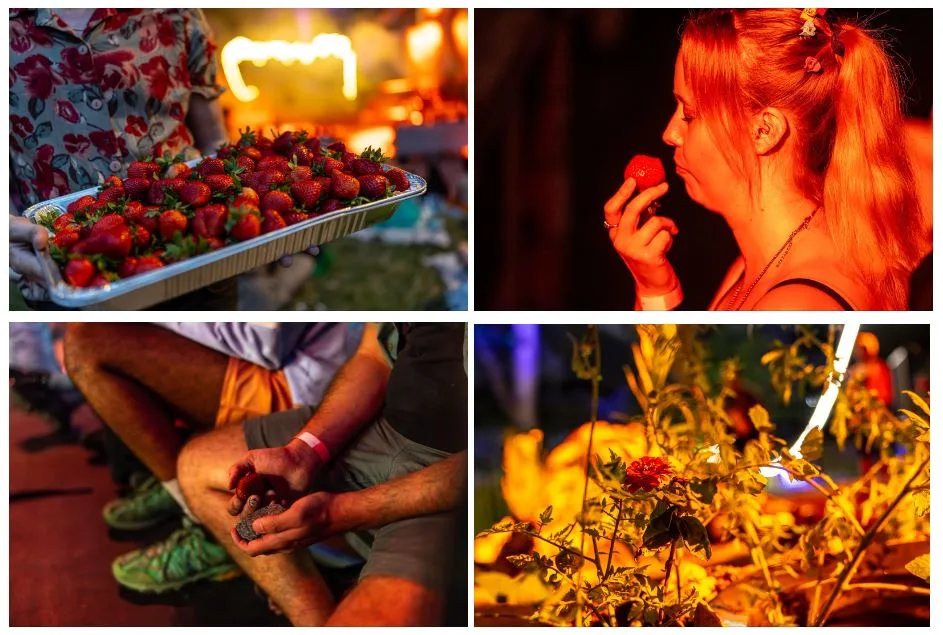
Attendees were encouraged to take part in sensory-based exercises, such as mindfully examining the textures of strawberries and carrying a rock throughout the night as a grounding experience. (Katherine Cheng/The Weather Network)
Thumbnail image: ‘Mother Earth is an Altar’ is the first poem that Saugeen Ojibway Nation Elder Dr. Duke Redbird performed for Earth Dreams. (Katherine Cheng/The Weather Network)











